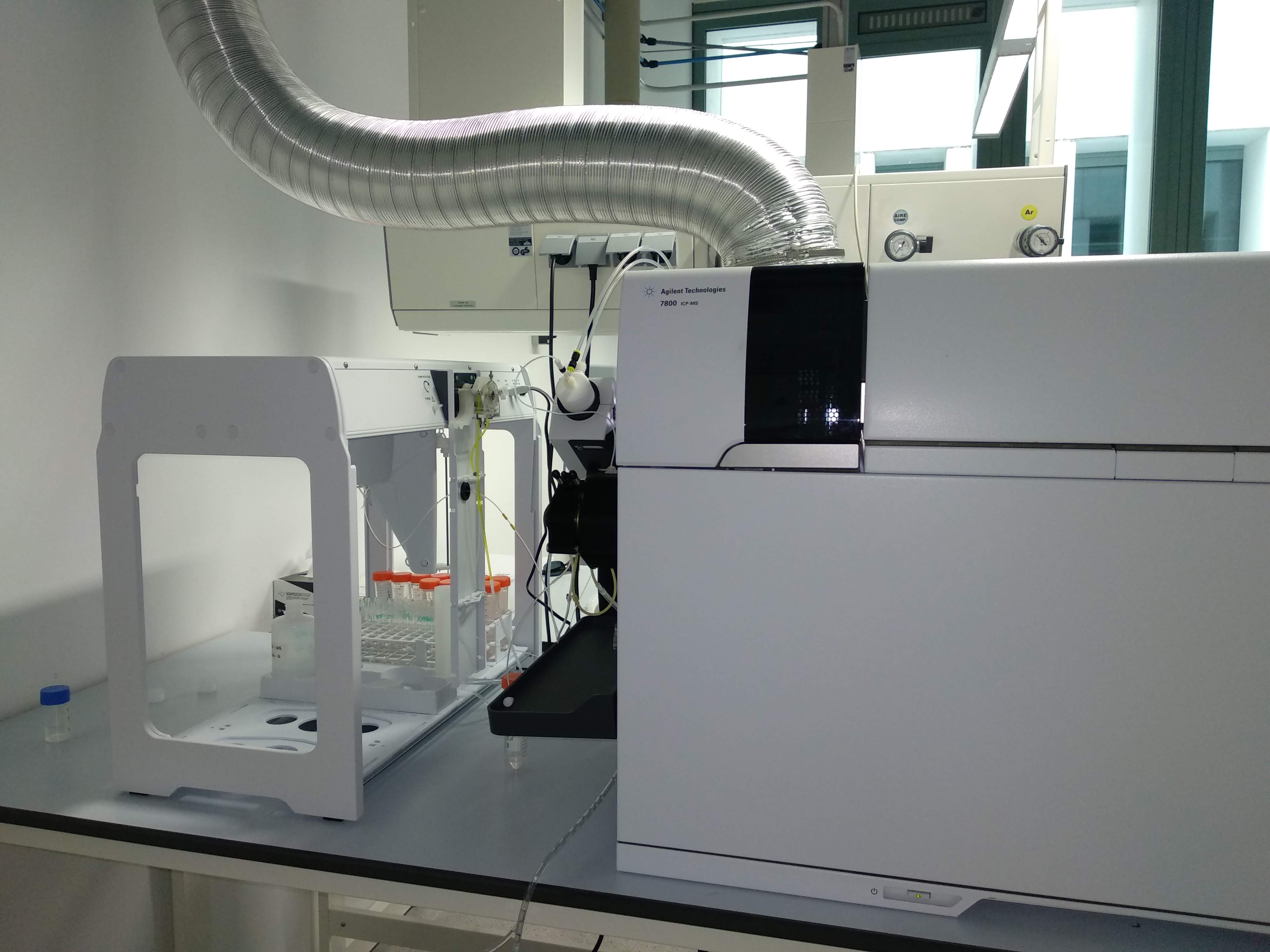Inductively Coupled Plasma Mass Spectrometry
Description
The general purpose of the Inductively Coupled Plasma Mass Spectrometer (ICP-MS) is to perform elemental analysis of liquid samples with organic and/or aqueous matrix. It uses an Ar+ plasma to ionize the atoms and uses the mass/charge ratio to discriminate the desired analytes. It is a very powerful and sensitive technique to analyze all type of samples such as environmental samples in order to determine elements at trace levels (between ng/l and mg/l). Additionally, quantitative, semi-quantitative results and isotopic information can be obtained. Our equipment is 7800 ICP-MS from Agilent Technologies.
Key features
- Sample introduction system with MicroMist Nebulizer for samples without HF, Spay Chamber to introduce the sample into the torch and High Matrix Introduction technology.
- Cone interface with sampling cones and skimmer cone either made of nickel or Pt.
- Omega Lens.
- Collision reaction cell (Octopole reaction system) with Kinetic Energy Discrimination to remove polyatomic spectral interferences by means of He.
- High frequency Quadropole mass analyze.
- Electron multiplier detector.
- Next generation Mass Hunter software has a user friendly worksheet interface, sophisticated algorithms that deliver accurate reliable results, and easy method development and software applets that include pre-set method templates designed to save you time.
Contact/Application form
In order to book the equipment, please contact Marc Fernández de Labastida (tecnics.multiescala@upc.edu).
To order an analysis, please download and fill out the Application Form in word or pdf format.
Please follow the general instructions to prepare samples for ICP-MS!
Share: